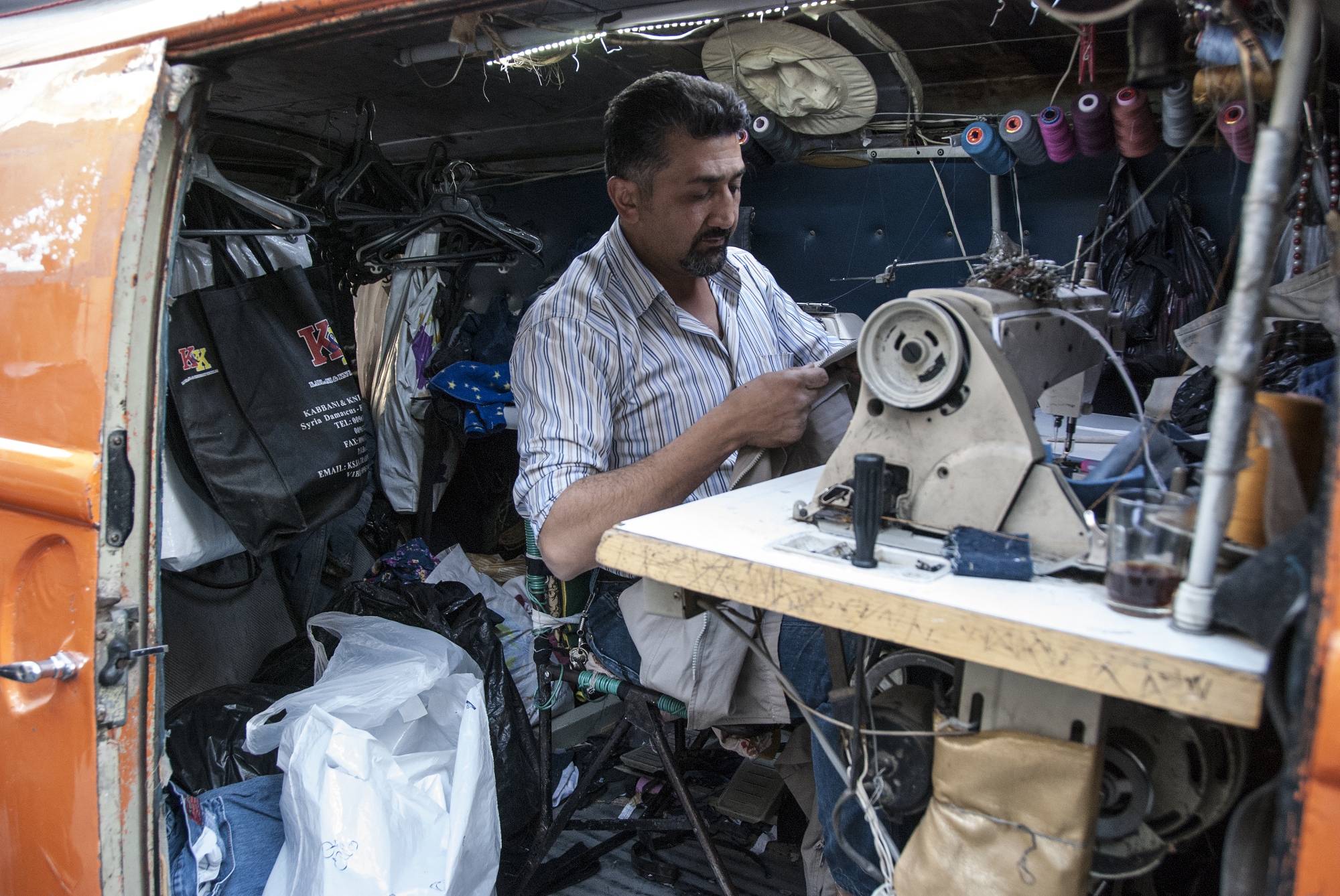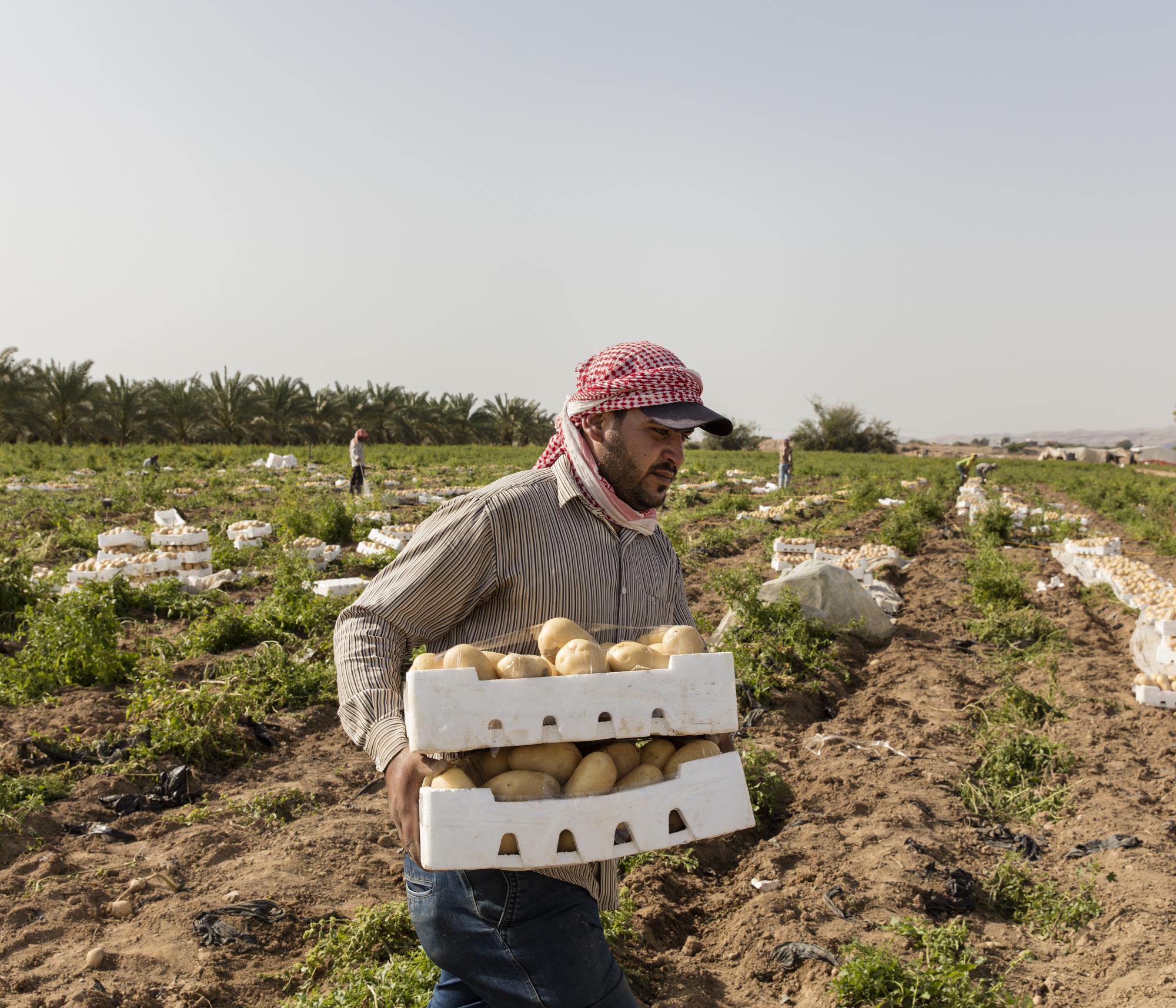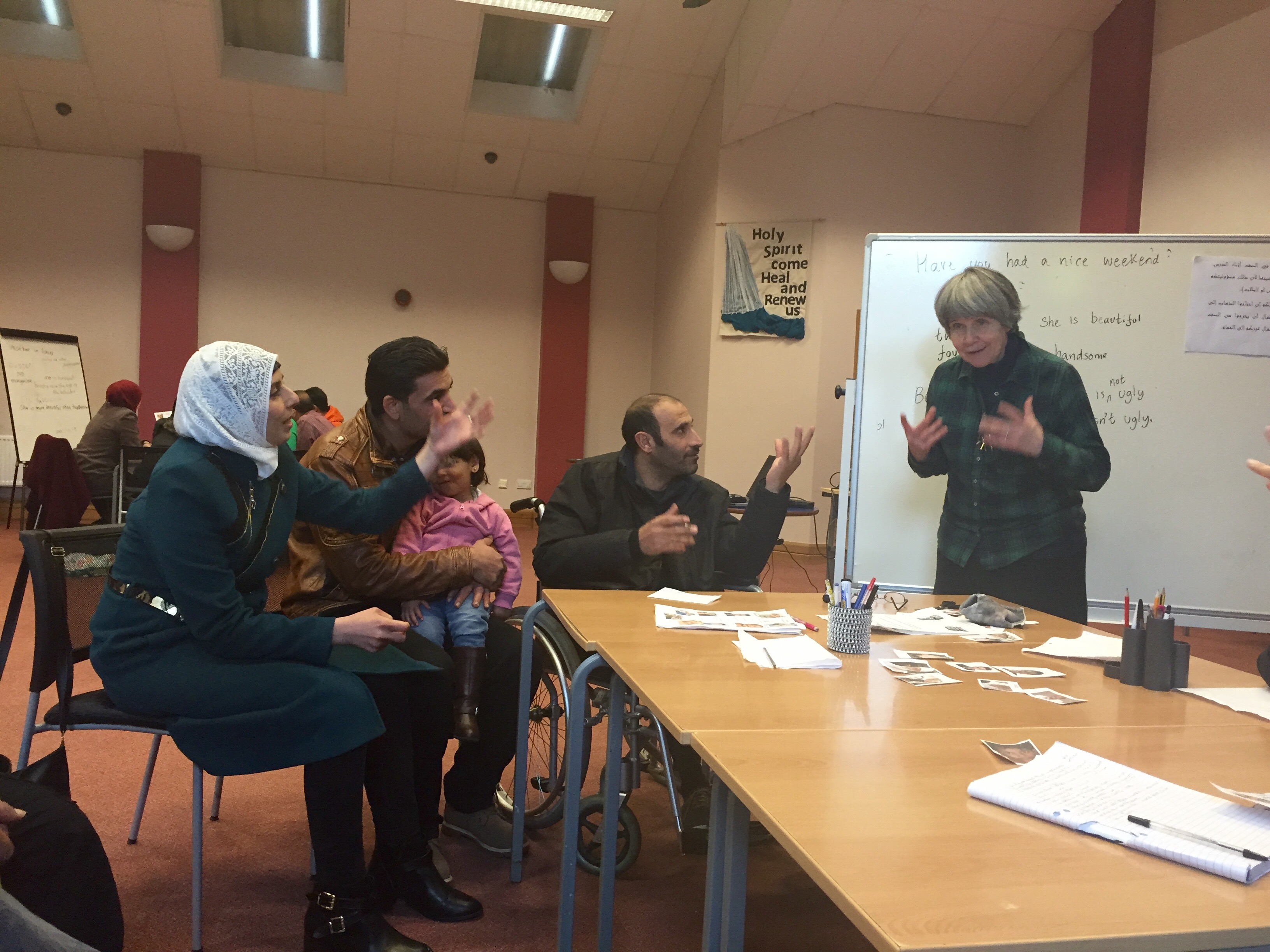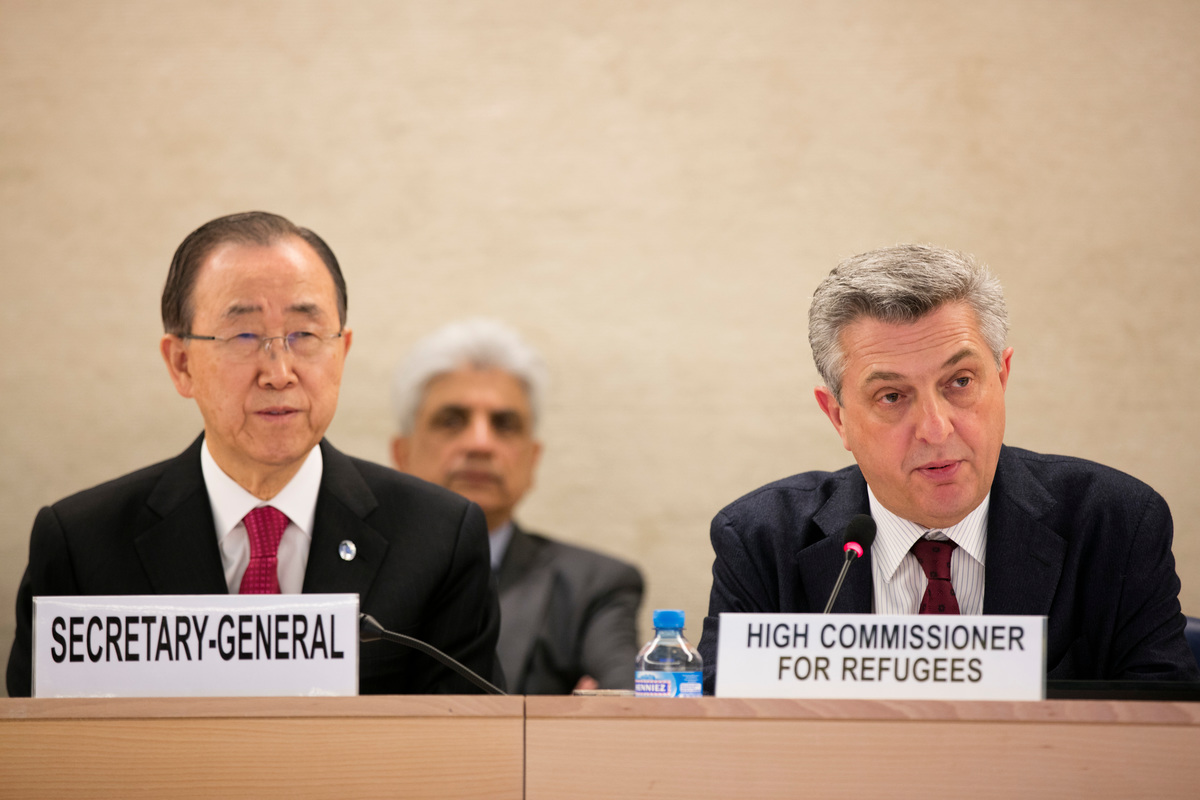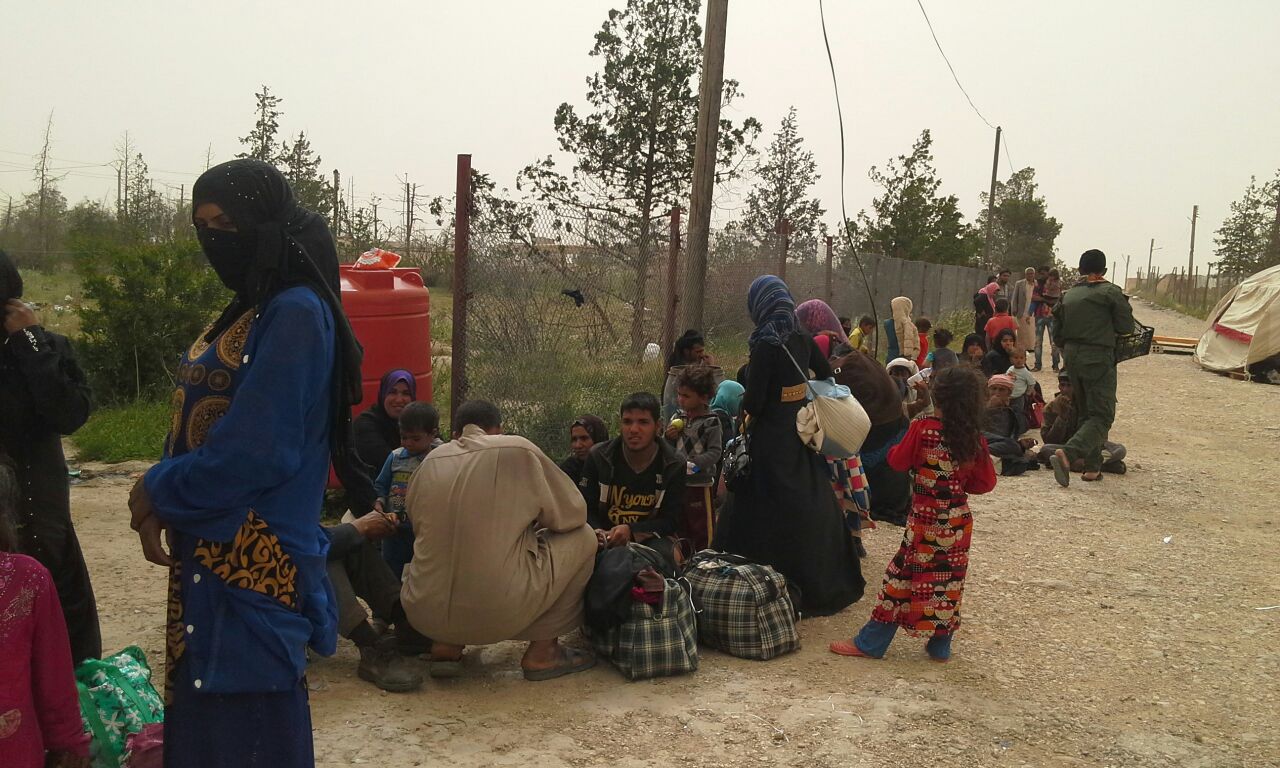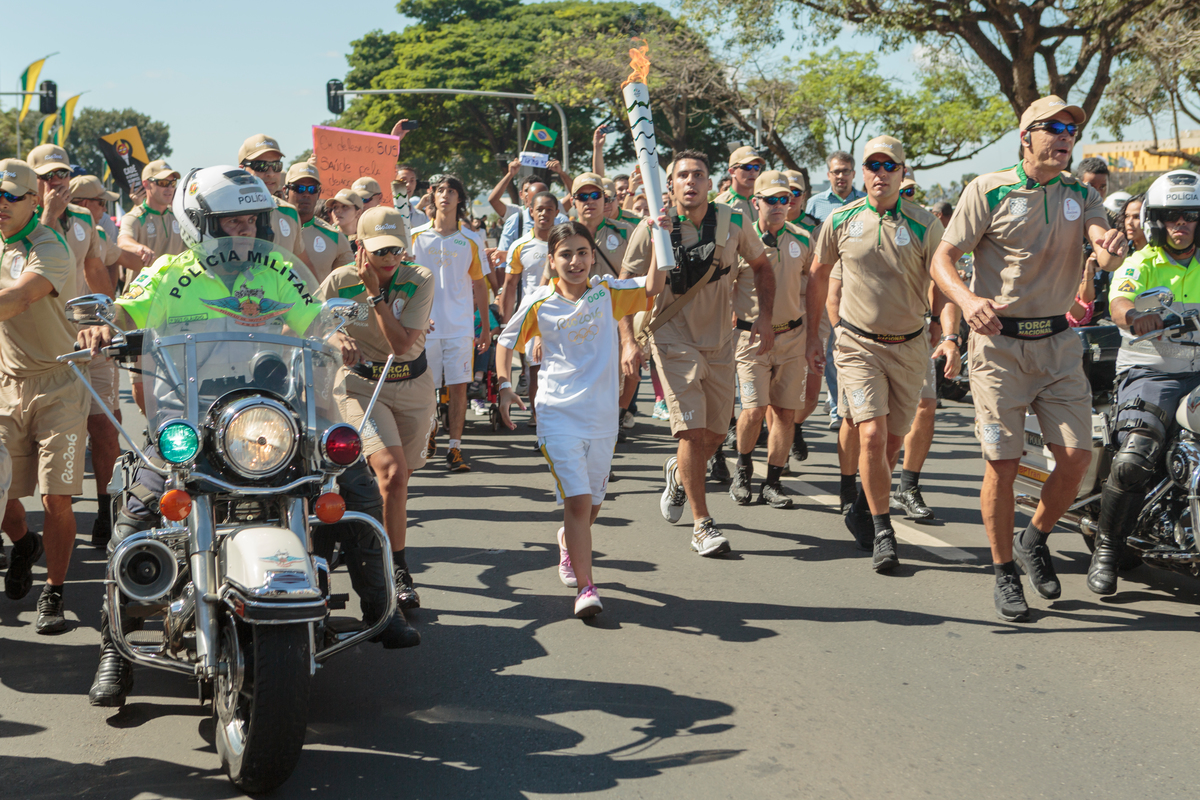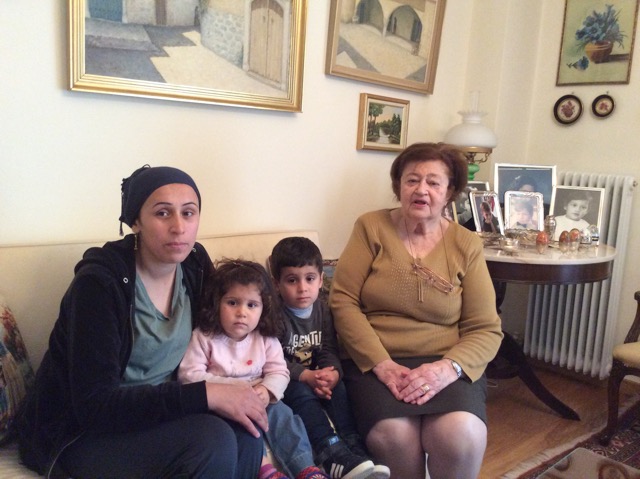Syrian's tailoring skill suits the needs of refugees in Iraq camp
Syrian's tailoring skill suits the needs of refugees in Iraq camp

DOMIZ CAMP, Iraq, January 3 (UNHCR) - Often fleeing with nothing but the clothes on their back, refugees are usually dependent on help from others, including host communities, UNHCR and its many partners.
But for Syrian refugee Diar,* 32, exile provided an opportunity for self-sufficiency and financial independence. Within two months of his arrival at Domiz Camp in July, Diar had opened his own successful tailor shop, serving both fellow Syrian refugees as well as the local community. Originally from Al Hassakeh governorate in north-eastern Syria, Diar previously ran his own tailor shop for many years in Damascus.
"I have four brothers and five sisters," he said recently as he pressed one of his client's shirts in his small shop. "I am the eldest and I have a lot of responsibility besides my father. I managed to have my own tailor shop and I was very happy. I helped my younger brothers and sisters to go to school, and I feel very proud about that," Diar added.
"I experienced two explosions quite close to me in Damascus. Luckily I survived. But I could not handle it anymore and I had to leave to protect myself and my family. I left with my whole family, and I brought this pressing machine with me to the camp so I could iron clothes."
Diar and his family are among almost 60,000 Syrian refugees who have arrived in the Kurdistan Region of Iraq since the Syrian conflict started in March 2011. Currently, some 31,000 refugees are living in Domiz.
The tailor opened his eight-square-metre shop within his family's camp space in September. Soon, business was booming. "After I arrived with my family, UNHCR provided us with accommodation, and supported me with getting electricity for the shop."
Rashid,* aged 18, arrived at Domiz camp four months ago. He is now one of Diar's many satisfied customers. "It is cheaper for me to get my clothes fixed here than to go outside the camp," Rashid said recently while he waited for Diar to fix a pair of pants. "I also get better quality and better service from Diar. I tried him before, and I believe he is an excellent tailor."
Diar's clientele has also expanded beyond the camp and now includes many locals. Fifty-three-year-old Shada is from the Domiz neighborhood and was recently in the camp to get new dresses made by Diar for her two daughters. "I am very pleased by Diar's work," she said. "I have been to his shop three times before and he is a skillful tailor. And I pay half the price, compared to tailors in my neighborhood. I've told other ladies in the neighborhood about Diar as well."
The growth of small-scale shops and a camp economy in Domiz is helping to ease pressure on agencies already providing nearly all of the basic needs required by the refugees. It also gives the refugees a sense of community. Diar, for example, earns US$15-US$20 a day, which enables him to support his family.
"The fact that UNHCR provided me with a place to live and with electricity to run my business allowed me to offer a low price to the refugees in the camp and to the local community," Dior said with a satisfied smile as he served one of his customers.
* Names changed for protection reasons.
By Mohammed Abu Asaker in Domiz Camp, Iraq

